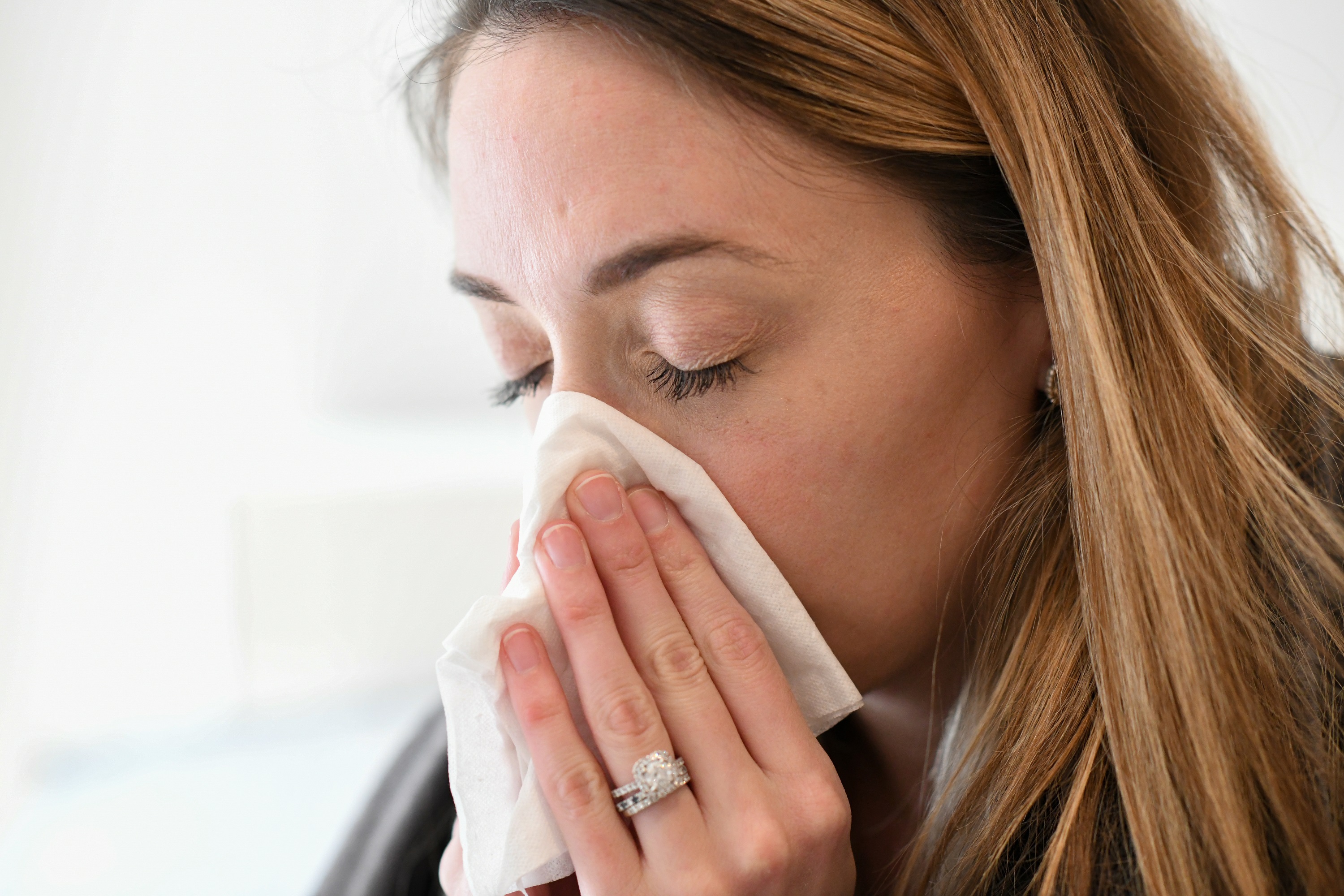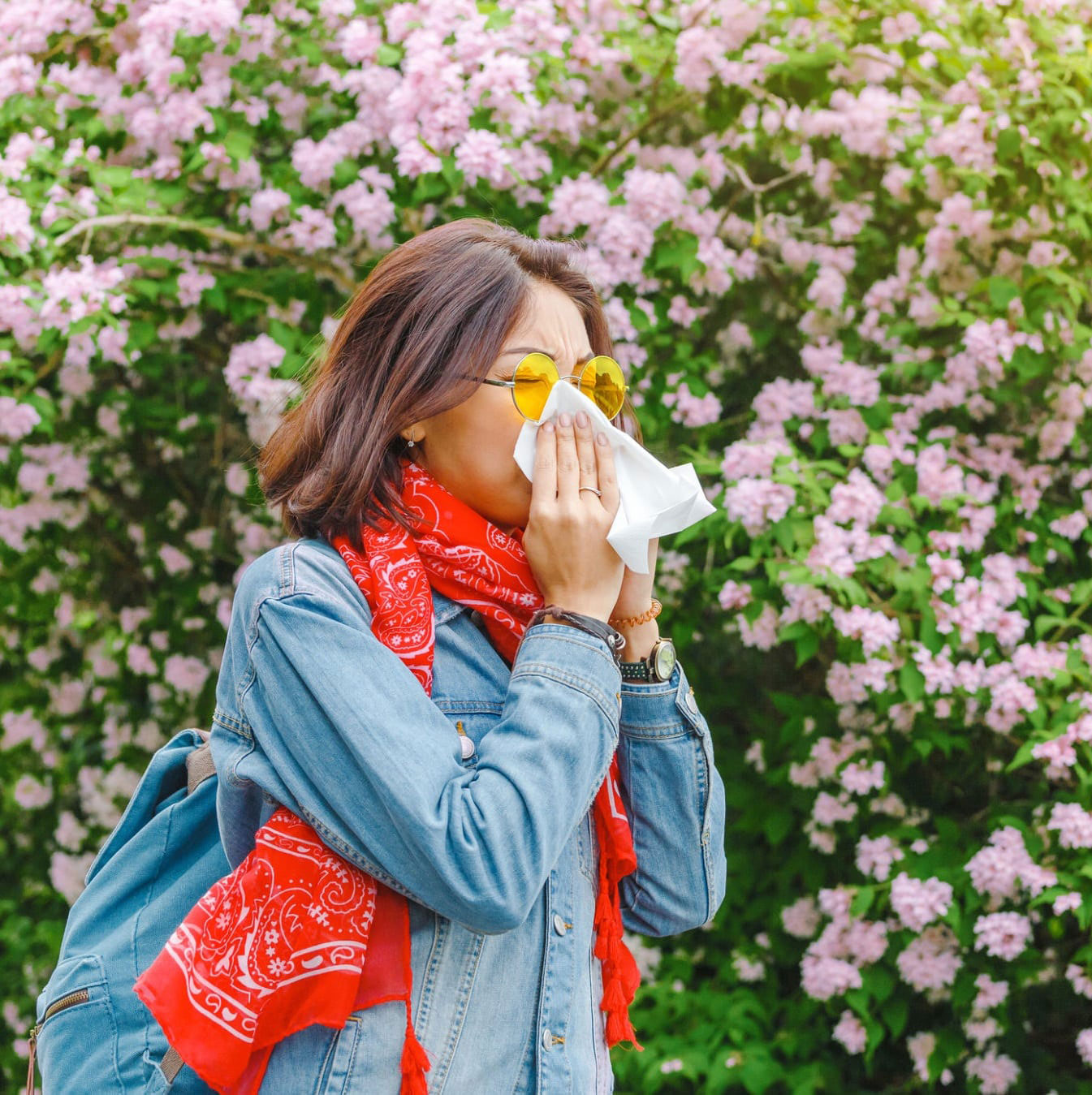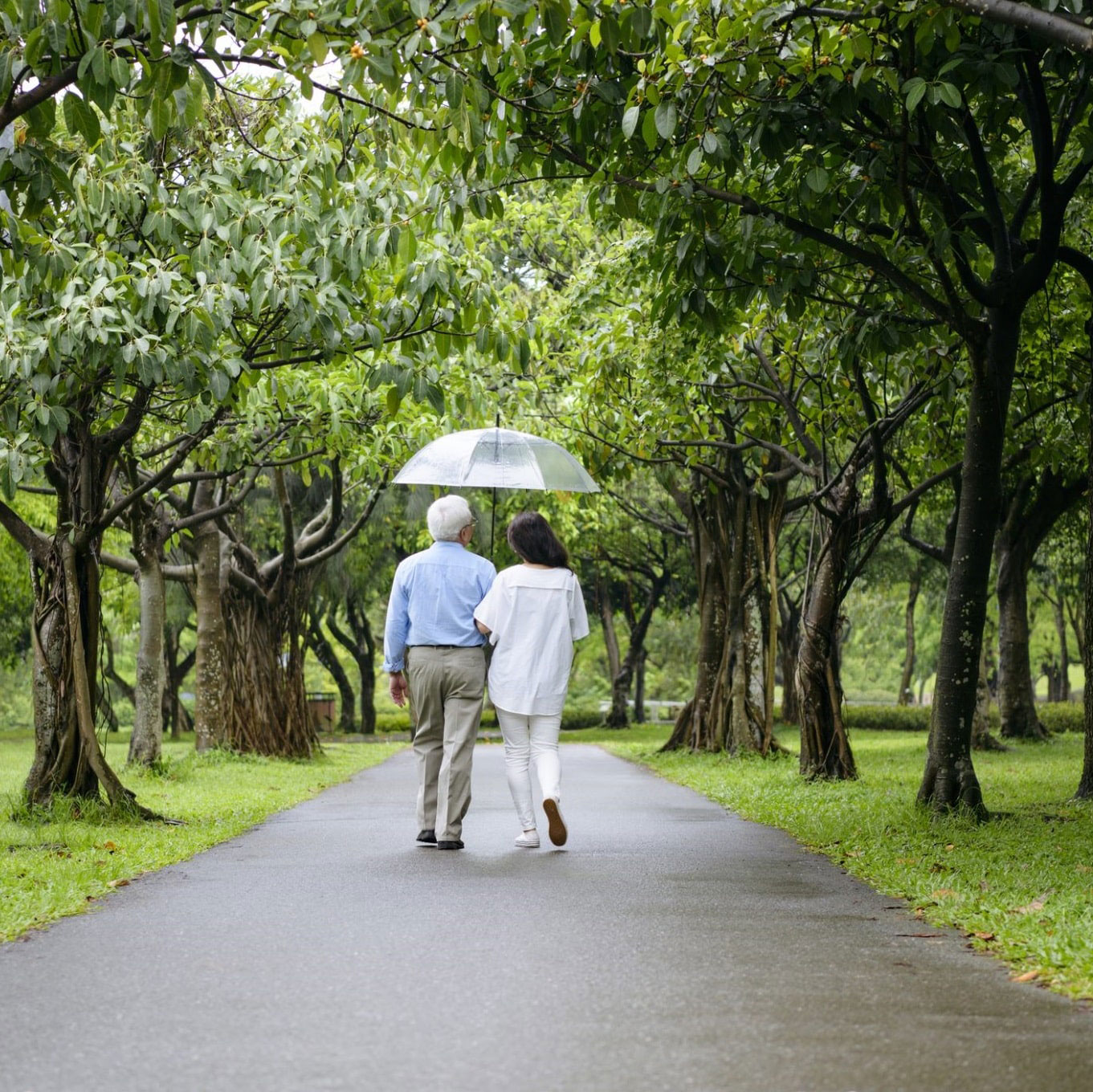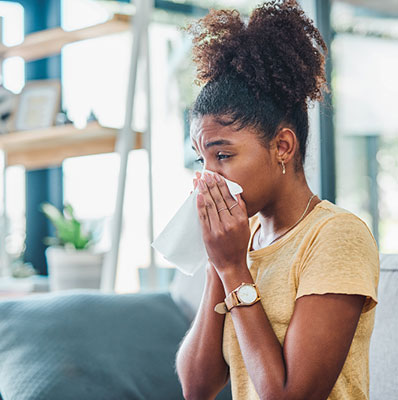How To Get Ready For Allergy Season

March 22, 2022
Did you know you can prepare for allergy season, before it even starts? You may be able to minimize the effect that pollen has on you, even on high-count days.
“It’s ideal to start treating springtime seasonal allergies early, so that you’re well-positioned before trees start producing pollen and releasing it into the air,” says otolaryngologist, Eric Winarsky, M.D.
For a spring with less discomfort and fewer symptoms, consider doing these things before and during allergy season:
Get allergy tested and come up with a plan
If you’ve never been tested but suspect that you have a pollen allergy, see an allergist for a definitive diagnosis before pollen season begins.
“An allergist may perform a skin prick test to determine which allergens cause a reaction,” Dr. Winarsky says. “Once you are diagnosed, it’s often advised to begin allergy treatments before pollen season arrives, to help minimize its effect on you.”
Your allergist may also help you formulate a plan to rely on when you’re in the throes of pollen season, including ideas like:
- Monitoring pollen counts and staying indoors on high-count days
- Wearing sunglasses and a wide-brimmed hat when you’re outdoors, to prevent pollen from coming into contact with your eyes
- Keeping your house and car windows closed during pollen season, using the air conditioning as needed to cool off
- Placing a HEPA filter in your air conditioning unit to further reduce your exposure to pollen while you’re indoors
- Showering, shampooing and changing your clothes after being outside, especially before going to bed
- Using a clothes dryer to dry your clothing, rather than hanging them outdoors to dry
- Minimizing physical contact with any pets who spend significant amounts of time outdoors during pollen season
- Using a neti pot to help rinse pollen out of your nose
- Going outside after a steady rainfall, when the pollen has been washed out of the air
Stock up on allergy medication
Be ready for pollen season with a supply of non-expired medication on hand. (If you use over-the-counter antihistamines, check your stash from last year to see if it’s still good or too old.)
For best results, begin taking medication a week or two before you normally experience pollen-related symptoms. Take it consistently throughout the weeks that you’re susceptible to pollen, not just an occasional dose to treat a flare-up.
Wear a mask outside
If you have to spend time outdoors on a day with a high pollen count, wear an N95 mask, KN95 mask, KF94 mask or even a surgical mask, especially if you’ll be doing work in the yard or going for a hike in the woods.
An N95 mask may filter out pollen particles as small as 0.04 micrometers. If you don’t have one handy, a standard surgical mask may filter out pollen particles as small as 3.0 micrometers. Masks that cover the nose and mouth provide superior protection from pollen, compared to wearing no masks, according to a study that was conducted during the pandemic. Israeli nurses who wore N95 and surgical masks consistently experienced fewer allergy symptoms, including sneezing, runny noses, nasal congestion and itchy eyes.
“If you’re no longer – or infrequently – wearing masks at work, school or in restaurants, you probably still have a stash of them at home,” says Dr. Winarsky. “Wearing them outdoors during pollen season is a good way to repurpose them.”
Next Steps & Resources:
- Meet our source: Eric Winarsky, M.D.
- To make an appointment with Dr. Winarsky or a doctor near you, call 800-822-8905 or visit our website.
The material provided through HealthU is intended to be used as general information only and should not replace the advice of your physician. Always consult your physician for individual care.
Find a doctor near me
The Difference Between COVID-19 and Allergies

COVID-19 vs. Allergies: Learn key differences in symptoms from Drs. Younus and DeCotiis. Get expert advice and schedule an appointment today.
Have Allergies? 6 Signs You Should See a Doctor

Severe allergies? Dr. Halari offers relief. Learn 6 signs you need a doctor & find solutions for better allergy management. Call 800-822-8905.
Find a doctor near me

Reducing Allergy Symptoms
If you suffer from seasonal allergies, being outside can trigger sneezing, itchy eyes and hives.

Are You Experiencing Allergies or a Cold?
Allergic or cold symptoms? Learn how to tell the difference from Drs. Cai, Lee, & Mezic. Find relief; call 800-822-8905.

Can You Develop Allergies as an Adult?
Adult-onset allergies? Learn why they develop and how to manage symptoms from Dr. Ravell. Get expert advice and treatment options. Call 800-822-8905.

Can Allergies Cause Dizziness?
Allergies causing dizziness? Dr. Younus explains causes and treatments. Find relief; call 800-822-8905.
